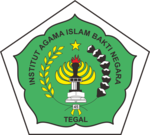Implementasi Kurikulum 2013 Melalui Analisis Buku Ajar PAI Kelas XI di SMA N I Balapulang
DOI:
https://doi.org/10.62490/latahzan.v14i1.323Keywords:
Implementation, Curriculum 2013, Islamic Education TextbookAbstract
This study examines the content aspects of the grade XI Islamic Religious Education textbook in terms of the four core competencies of the 2013 curriculum, which include spiritual attitudes, social attitudes, knowledge and skills. Researchers chose SMA N 1 Balapulang in 2020/2021 as the object of implementation of the textbook. The type of research that will be used is field research. Data collection using observation, interview, and documentation methods. The analysis used is descriptive of textbooks and field objects as a place of implementation, namely at SMA N I Balapulang class XI. The results of this study indicate that the PAI textbook used is quite ethical, aesthetic, communicative and functional. In terms of writing, spelling, punctuation, vocabulary, sentences and paragraphs in accordance with the rules, terms used in the book and of course also easy to understand. This is also supported by adequate high school facilities, including teachers and students who can carry out 2013 Curriculum learning activities. In addition, it is also evidenced by the achievements made by SMA N 1 Balapulang which can compete with other favorite schools.
References
Ahmad, J. (2017). Problematika Pendidikan Agama Islam (PAI) dalam Kurikulum 2013 dan Revisi 2013. https://ahmadbinhanbal.com/problematika-pendidikan-agama-islam-pai-dalam-kurikulum-2013-dan-revisi-2013/
Ahmadi, R. (2014). Pengantar Pendidikan Asas dan Filsafat Pendidikan. Ar-ruzz Media.
Airifin, Z. (2011). Konsep dan Model Pengembangan Kurikulum. Remaja Rosdakarya.
Amalia, A. (2017). Analisis Bukua Ajar Pendidikan Agama Islam dan Budi Pekerti SMP Kelas VII Kurikulum 2013. IAIN Purwokerto.
Arifin. (2016). Implementasi Kurikulum 2013 pada Mata Pelajaran Pendidikan Agama Islam dan Budi Pekerti Kelas X SMK Alfalah Badak Belik Pemalang. IAIN Purwokerto.
Dwicahyono, A. (2014). Pengembangan Perangkat Pembelajaran, Silabus, RPP, PHB, Bahan Ajar. Gava Media.
Faoziyah, L. (2020). Analisis Buku Ajar Bahasa Arab Madrasah Aliyah Berdasarkan Kurikulum 2013. IAIN Purwokerto.
Hamid, A. (2008). Pembelajaran Bahasa Arab Pendekatan, Metode Strategi, Materi Media. UIN Malang.
Imran. (2014). Fungsi Tujuan dan Manfaat Penggunaan Buku Teks Belajaran dalam Pembelajaran. https://ilmu-pendidikan.net/pustaka/buku/fungsi-tujuan-dan-manfaat-penggunaan-buku-teks-pelajaran-dalam-pembelajaran.pdf
Lestari, I. (2013). Pengembangan bahan ajar berbasis kompetensi. Akademia Permata.
Muslich, M. (2010). Text Book Writing. Ar-Ruz Media.
Mustakim, M. (2017). Buku Guru Pendidikan Agama Islam dan Budi Pekerti. Kementrian Pendidikan dan Kebudayaan.
Nurfuadah, R. N. (2014). Perbedaan KTSP dan Kurikulum 2013. https://edukasi.okezone.com/read/2014/12/08/65/1076314/perbedaan-ktsp-dan-kurikulum-2013
Romansyah, K. (2016). Pedoman Pemilihan dan Penyajian Bahan Ajar Mata Pelajaran Bahasa dan Sastra Indonesia. Jurnal Logika, 17(2).
Umar. (2016). Pengembangan Kurikulum Pendidikan Agama Islam Transformatif. Deepublish.
Downloads
Published
How to Cite
Issue
Section
License
Copyright (c) 2023 Ridlotun Nasikha

This work is licensed under a Creative Commons Attribution-ShareAlike 4.0 International License.
The copyright of the received article shall be assigned to the journal as the publisher of the journal. The intended copyright includes the right to publish the article in various forms (including reprints). The journal maintains the publishing rights to the published articles.
In line with the license, authors and any users (readers and other researchers) are allowed to share and adapt the material. In addition, the material must be given appropriate credit, provided with a link to the license, and indicated if changes were made. If authors remix, transform, or build upon the material, authors must distribute their contributions under the same license as the original.
















